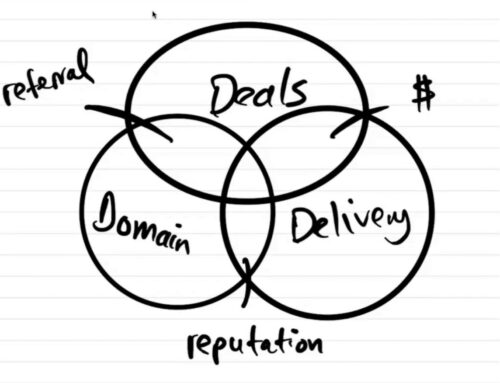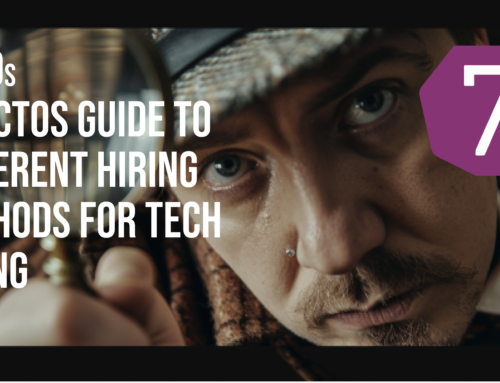The Gig Economy and Product Roadmaps with Vidya Dinamani, Eric Lawler and Kamel Boulos
On today’s CTO Studio we dive into the gig economy, and building product roadmaps with clients and customers in mind (including what to do and what not to do).
We are once again joined by three guests. Talking about gig economy and product roadmaps is Vidya Dinamani who founded Product Rebels and AdAstra. With her is Eric Lawler, the CTO of Lawn Love and Previos, and also Kamel Boulos who is the CTO of Closing Corp.
We also cover the origins behind our guests’ companies and how they’ve evolved since their inception. Join us to hear all of the great content on this edition of CTO Studio.
In this episode, you’ll hear:
- What percentage of the mortgage lenders use Closing Corp? (7:10)
- How did the Y Combinator experience help Lawn Love grow? (16:40)
- What two questions do they start with at AdAstra? (31:40)
- How do you know if you are giving people something they actually want? (34:30)
- Should you have a pre-planned product roadmap? (46:50)
- And so much more!
Today’s episode of CTO Studio starts with Kamel telling us about Closing Corp and being their CTO. Closing Corp is a data and technology company that provides services to mortgage lenders (think banks, credit unions, non-bank mortgage lenders, etc.); they have been around for nearly a decade.
Specifically they provide fees for their lenders who use those fees as part of the mortgage transaction. Closing costs would be data they provide to their clients. In terms of growth they aren’t a startup, they are more like in their early stages. The last few years have brought them terrific growth, which continues today.
I was curious about their market utilization: are there many data companies like them? Or are there very established, “old money” type businesses?
They have roughly about 22% marketshare. They are the largest provider of this service, and there aren’t that many providers. The company they consider to be their next competitor has about 10% and there are about two or three that have 1% or 2%. Their main competition comes from lenders doing it themselves in-house. But when they come to Closing Corp and compare doing it themselves versus using Closing Corp it is a no-brainer to go with Closing Corp.
And their client list speaks to that fact: over 20 of the top 25 lenders in the country are their customers, which means 1 out of every 5 mortgages or refinanced mortgages are going through Closing Corp. As far as being the CTO, it’s extremely exciting on the technical side. Since he joined Closing Corp it has been growing upwards of 300%.
Ensuring their platform performs and scales well has been exciting. They have over 10 million actual calls hit their platform because every loan file calls multiple times. It’s critical their platform can handle that level of volume, it must scale well and perform well with acceptable response times.
Next we get into Eric’s story with Lawn Love. Lawn Love is the Uber of lawn care. If you have a yard that needs attention you can use Lawn Love to find someone to care for it. You can find contractors who specialize in design or turf maintenance, etc.
Lawn Love helps the contractors do more of what they love: be outside taking care of lawns and gardens and less of what they may not like or be as good at: sales, marketing, collecting payments, etc. On the flip side, Lawn Love also helps consumers get their lawncare needs covered.
Although Eric wasn’t with Lawn Love at the time, we also talk about the Y Combinator experiences his CEO at Lawn Love had with the start-up stage of the company.
Eric’s CEO had people teaching him all the aspects of team building, raising venture capital and how to carefully spend the money that was raised. And that’s part of their success story: having that network of connections from companies like Sprig or Lyft, etc. People have always been very willing to help when asked, thanks to the YC networks.
Kamel is curious about what challenges they are facing: what is stopping them from pulling in 20% of the market (or more)?
There are a number of challenges: the top one being how to get supply to continue to expanding and growing deeper into every single city. How can they come up with new customer acquisition strategies to find the type of consumer that’s more likely to use the Yellow Pages or word of mouth from their neighbor, than use an app.
The market is very fragmented. The largest lawn and landscape companies are only worth about $4 billion (the market itself is over $80 billion). And those companies mainly offer supplies with chemical applications. To truly dominate the US market Lawn Love would need to reach deep into the supply network and find ways to bring value to the lawn professionals so their word of mouth can bring more professionals onto the platform.
He explains their strategy in-depth before we talk about AdAstra’s origins and why all of their female founders can clearly define who are their customers, and how CTOs can help their companies shift and change according to market demand.
We wrap up the show by talking about how to manage customer requests and client demands within your product roadmap, and why having a fixed roadmap for the next year means you are not agile. Hear all of that and more on today’s CTO Studio!
Episode Resources:
Share This Story, Choose Your Platform!
Related Podcasts




